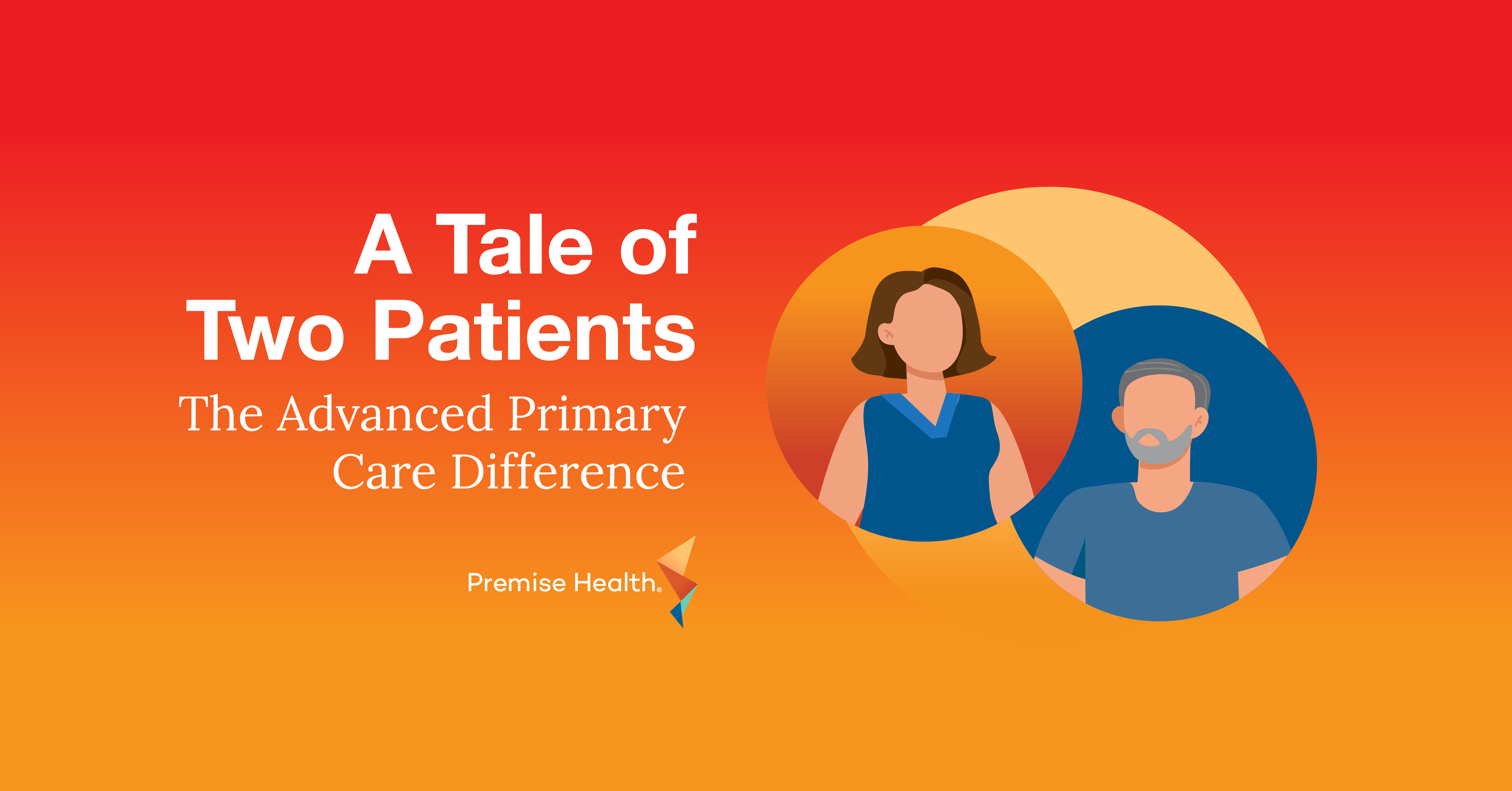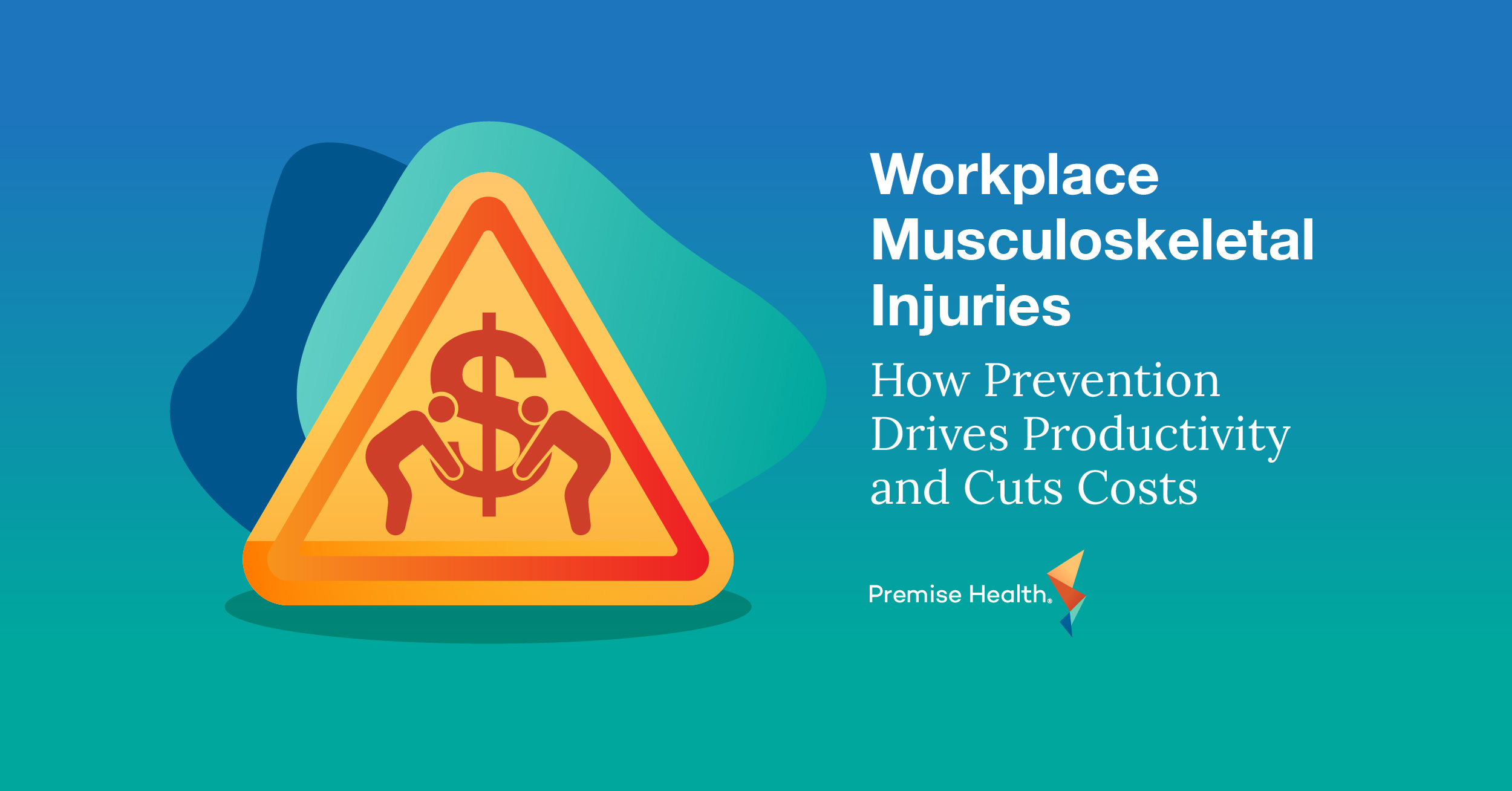4 Overlooked Chronic Conditions That Benefit from Personalized Care
When you think of the phrase “chronic condition”, what comes to mind? Chances are it’s diabetes, hypertension, or obesity – conditions that are some of the most visible and widely discussed health issues today, simply because they affect millions of people and require constant management.
The reality is: members are managing more chronic conditions than ever before, but many conditions are not traditionally thought of in the same way – yet they can contribute to complications that still drastically affect members and their organizations. Poor health from these conditions can result in decreased productivity while at work, missed workdays, low morale, and more.
Commonly Overlooked Chronic Conditions
Headache disorders, asthma, irritable bowel syndrome, and even depression are all examples of non-traditional or overlooked chronic conditions that can have these effects. In today’s blog, we’ll take a closer look at these four common conditions not traditionally categorized as chronic, their impact, and how personalized care can help improve outcomes for both members and their organization.
Headache Disorders
25 million Americans will experience migraines, a type of headache disorder, each year. Like other chronic conditions, many people still opt to work while experiencing symptoms, mostly because they can’t take time off or they might even feel it isn’t justified. However, left unmanaged, headache disorders can quickly become debilitating. One study found that during migraine attacks, people are less than half as effective in the workplace due to pain, unpredictability, emotional impact, and more; this amounts to $26 billion per year in productivity losses, absenteeism, and presenteeism.
The indirect impact of headache disorders can be measured outside of the workplace, too. Similar to more “traditional” chronic conditions, symptoms can become so intense that members will seek emergency care and need to be prescribed medication. Given the high cost of hospitalizations, prescriptions, and further doctor visits, this alone amounts to an additional $10 billion annually. While members will suffer their own out-of-pocket costs as a result, these expenses are often largely covered by their employers.
Asthma
Asthma is one of the most common chronic non-communicable diseases, affecting nearly 28 million people in the U.S. Although many people are diagnosed in their younger years and learn how to manage early-on, adult-onset asthma can also be a very serious and chronic disease. Often mistaken or dismissed as allergies, when any type of asthma is left unmanaged, the impact can be both costly and life-threatening. For employers, the healthcare expenditure is significant: asthma treatment costs $21 billion annually and even caused nearly 3,000 avoidable deaths in 2023, making it comparable to the impact of other more commonly known chronic conditions.
Irritable Bowel Syndrome
An estimated 5-10% of the world’s population live with irritable bowel syndrome (IBS), including as many as 25-45 million Americans. While it’s often dismissed as simple digestive issues, IBS is a complex condition that goes beyond just unpredictable bowel trouble – including symptoms like chronic pain, bloating, and even mental health challenges like increased psychological distress and lower perceived quality of life.
In the workplace, these symptoms can be deeply disruptive; one study found that members with IBS experience a 21% reduction in work productivity, which is equivalent to working less than four days in five-day work week. Like more widely recognized chronic conditions, IBS requires ongoing management and carries hidden physical and financial costs for both members and employers.
Depression
It’s important to remember that many complex conditions are not just physical, and various mental health conditions warrant the same level of care as physical chronic conditions. This is especially true when considering depression, which affects one in five adults in the U.S. What makes mental health conditions uniquely challenging to manage is that the impact cannot always be easily seen.
Organizations may notice effects like absenteeism, with poor mental health accounting for nearly 12 unplanned absences annually, compared to 2.5 for other workers. However, those managing mental health conditions like depression may not seek help until it’s an emergency, resulting in much higher healthcare spend, especially for reactive care.
How Personalized Care Can Help Manage Overlooked Conditions
While conditions like diabetes, hypertension, or obesity often dominate chronic care conversation, many members quietly struggle with these less visible but equally complex conditions. These conditions are often misunderstood, misdiagnosed, or minimized, leading to poor health outcomes and unnecessary spend.
For a member managing one or more complex conditions, a personalized care plan tailors support to their individual needs, resulting in treatment that will actually work for their lifestyle. Effective care plans are developed by a skilled care manager who works closely with the member’s primary care provider (PCP) as well as the rest of their care team. By working together, the care manager can create truly customized care that accounts for the full picture of the member’s health, including social drivers like food access, transportation, and living conditions to effectively meet their needs. The result is better health outcomes for members and improved savings for their organization.
What might this look like in practice for a member managing headache disorders? Let’s walk through an example:
A 38-year-old member is experiencing frequent, severe headaches. They’ve been relying on over-the-counter medications and occasionally visiting urgent care when the pain becomes debilitating. The member is starting to miss work and withdraw from team activities due to symptoms and fatigue. The member reaches out to their PCP, who understands their full medical history, and is connected with a care manager as a resource.
The care manager engages with the member to understand the frequency and triggers of the headaches. With the information provided by the PCP, the care manager works with the member to identify potential lifestyle triggers like lack of sleep, skipped meals, or screen time. They develop a detailed plan for how the member can adjust their habits accordingly. They also educate the member on how to properly track their symptoms and checks in with them regularly. If a new medication is prescribed, a pharmacist will help them understand when and how to take their medication, while the care manager follows-up to ensure it’s working and collaborates with the pharmacy if adjustments are needed.
With the help of this high-touch care plan, the member begins to have headaches much less often, improving their quality of life, allowing them to be more present at work, and reducing the need for urgent care.
Personalized Care for All Complex Conditions
Through care management at Premise Health, care managers provide personalized care for members managing a range of complex conditions. Using a data-driven approach, these providers engage high-cost, high-risk members to help get them on the right track to a healthy life. No matter which conditions are prevalent among your population, your members deserve the same level of care and time commitment from a dedicated provider. The fact is, when your members live healthier, you save more.
If you’re ready to offer high-touch care for your members managing all types of complex conditions, read more about care management or contact us.
Next on industry insights.

A Tale of Two Patients: The Advanced Primary Care Difference
Read the Blog
Overcoming Burnout: Strengthening Workforce Resilience Through Behavioral Health
Read the Blog